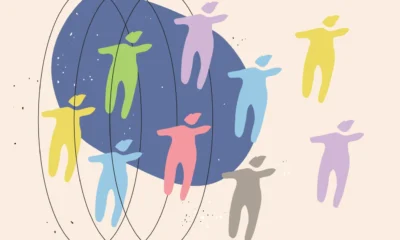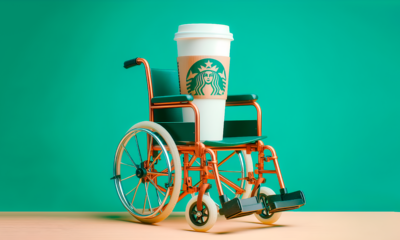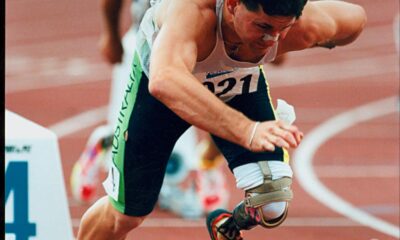Entertainment
Disabled Book Characters: Five of our Favourites

From Christopher John Francis Boone to Melody Brooks, here are five of our favourite disabled book characters
It’s easier to relate to characters who share similarities with you. So, for anyone with a disability, it’s refreshing to read about someone who has experienced and understands your personal struggles and limitations, but also has a story to tell and is more than capable of facing challenges head-on. There are lots of amazing disabled book characters out there, although some might argue there aren’t enough. Here are some you might want to add to your reading list to get started.
Christopher John Francis Boone
Christopher John Francis Boone is the main character in Mark Haddon’s The Curious Incident of the Dog in the Night-Time.
His autism means he doesn’t think or react in the same way as other people might when he discovers his neighbour’s dead dog. He sets out to solve the murder, and this gets him into a few sticky situations.
The book is well written by Haddon and goes inside the mind of someone with autism, giving those diagnosed with autism a character they can understand and relate to, while helping everyone else get a better understanding of how it feels.
There’s one particular scene which describes the process of Christopher trying to get on the tube and it shows his apprehension over a task that is a daily occurrence for most people, but is a big challenge to overcome for him.

Secrets Typed In Blood Book Cover
Lillian Pentecost
Lillian Pentecost is a character created by Stephen Spotswood in his A Pentecost and Parker Mystery Series. Lillian is described as an unorthodox private detective. She takes on another woman to help her (Will Parker) when the MS makes it difficult to keep up with her caseload.
Set in the 1940s, this noir series has two strong female characters in a time when women struggled more than they do today to be taken seriously. Combined with Lillian’s MS, it shows what women and people with a disability can do when the odds and other people’s expectations are stacked against them.
Reba McClane
Fans of Red Dragon by Thomas Harris will know Reba McClane is the blind co-worker who Francis Dolarhyde falls for. While the relationship may not be the healthiest, particularly because he tries to kill Reba, the FBI profiler, Will Graham later attributes her kindness to Dolarhyde killing fewer people than he might have if it wasn’t for her.
She may not be a major character in the book, compared to Dolarhyde and Graham but this makes her an integral part of the story and shows that it’s the small acts that can have the most impact. Reba is an inspiration to anyone wanting to make a difference.

Notre Dame © Pixabay
Quasimodo
It might seem strange to list Quasimodo as an interesting or inspiring disabled character, particularly when nobody would take being compared to him as a compliment. However, Victor Hugo’s famous character from The Hunchback of Notre Dame experienced more than his fair share of persecution.
Unfortunately, this is something many disabled people can relate to. He was born with a hunch that set his appearance apart from other people and later became deaf. His basic nature was kind, but he was led to commit violence by others who used him for their own gain, or when he is forced to defend himself.
His kindness gradually wins the friendship of his love interest, Esmeralda. Although this turns tragic, the emotions he shows so strongly show he is as deserving of love and friendship as anyone else, perhaps more so.
Melody Brooks
Melody Brooks is the main character in Out of My Mind and Out of My Heart by Sharon M. Draper. Being unable to walk, talk or write because of her Cerebral Palsy poses challenges, but doesn’t stop her from being the smartest kid in her school, even though nobody else realises it. Her photographic memory means she can remember every detail from every experience in her life. Because she can’t demonstrate this, everyone writes her off, dismissing her as mentally challenged.
The books and Melody’s character are great for helping others realise that there is often more beneath the surface than a person’s disability.
If you read and enjoy any of the books mentioned in this article, make sure you share them with your friends and family, disabled or not, because we all have something to learn and can take inspiration from these books and the characters inside them.
Entertainment
Parents Aid Intellectually Disabled in College Degrees
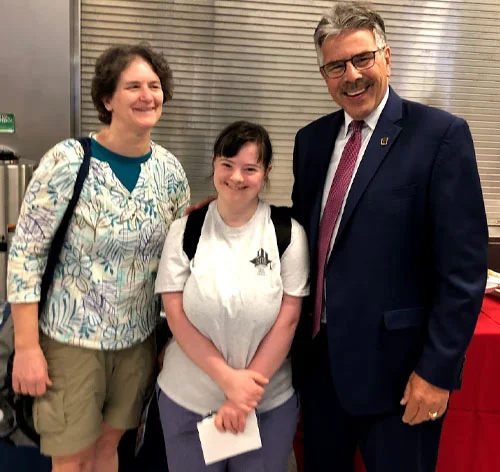
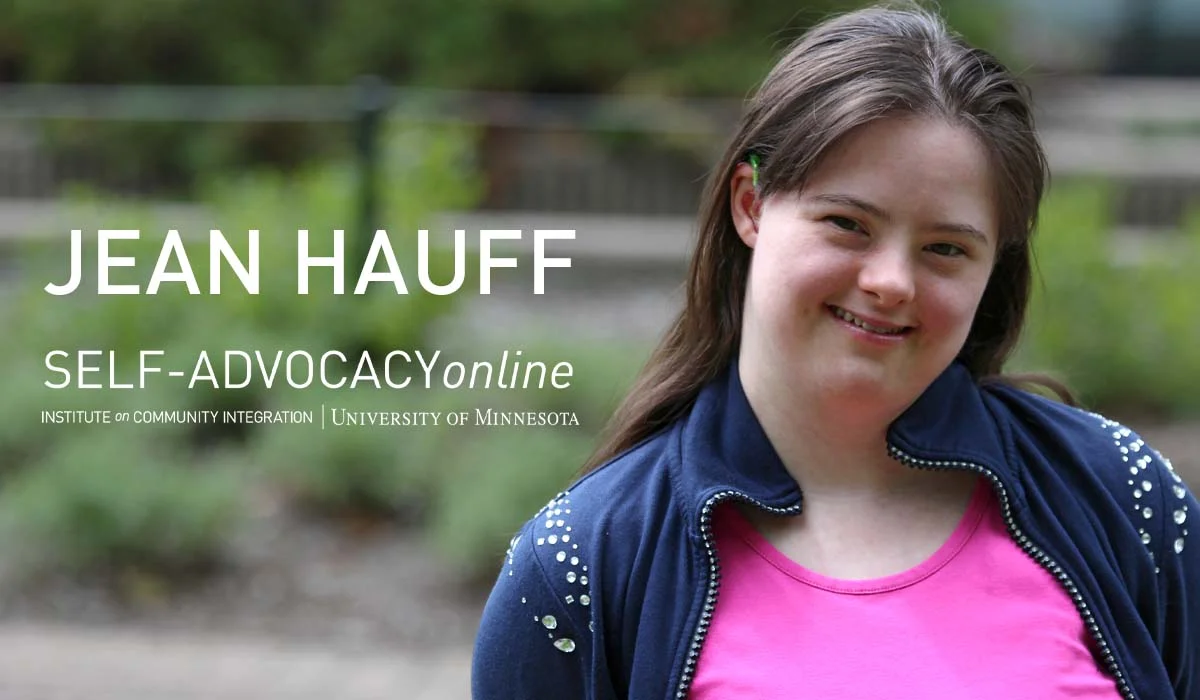
In her home state of Minnesota, the dream of college seemed out of reach for Jean Hauff, a young woman with Down syndrome. She wanted to pursue a career in mass media, but no Minnesota school offered the intellectual disabilities college programs or specific support services she craved.
Jean faced this troubling reality because Minnesota lacked a system that embraced students with disabilities (ID) within mainstream higher education. Existing programs were limited, offering neither the desired fields of study nor the promise of a fulfilling college experience. This situation caused worry for Mary Hauff, Jean’s mother, who since Jean’s birth has been a champion of inclusive education.
This frustration fueled the creation of the Minnesota Inclusive Higher Education Consortium in 2019. This powerful coalition, composed of parents and disabilities advocates, embarked on a mission to transform the higher education landscape for students like Jean.
The efforts of this coalition made a significant turning point in 2023 as the Minnesota Legislature began to recognize the potential and the right of intellectually disabled students. A significant $2 million was allocated for a period of two years to promote inclusive higher education in the region. This brought smiles to parents whose children struggle with ID, highlighting the importance of parental aid degrees.
The vision is clear: students with ID deserve the same opportunities as their peers – the same range of study options, enriching campus experiences, and the chance to earn meaningful credentials. Experts believe that a substantial portion of the allocated funds will directly empower colleges to develop innovative methods to attract and support students with ID, providing much-needed college degrees assistance.
Another crucial aspect of this initiative is the creation of a technical assistance center, funded with $500,000 and housed at the University of Minnesota. This center serves as a central hub for expertise, offering best practices on providing inclusive postsecondary education. Students with ID themselves have a significant voice in shaping this center’s direction, with half the members of its advisory committee coming from this very community.
A past attempt at attending a technical college left Dupree Edwards, a Minnesotan with ID, feeling unsupported and ultimately led him to abandon his pursuit. However, Edwards thrives when given accessible learning materials and a structured environment that caters to his learning pace. The news of the legislation was met with immense joy by Edwards, who aspires to pursue formal studies in performing arts – a dream that now seems achievable thanks to increased disabilities support college.
The Higher Education Opportunity Act of 2008 also laid the groundwork for increased college access for students with ID nationwide. Today, Minnesota joins states like Kentucky, which established a similar technical assistance center in 2020, witnessing a subsequent doubling of college opportunities and disabilities within the state.
Also, institutions can apply for grants of up to $200,000 per year for four years, empowering them to develop or strengthen their capacity to support students with ID. This highlights the importance of inclusive education.
For Jean Hauff, whose college journey took her outside Minnesota due to a lack of suitable options, this initiative holds immense significance. Despite a positive experience at Duquesne University’s pilot program for students with ID, she eventually had to transfer due to program changes.
Now, with this renewed hope, Jean aspires to pursue her education and career goals within her home state.
While this groundbreaking investment serves as a beacon of hope for students with ID in Minnesota, many students like Jean feel that with the help of parents and disabilities advocates, it’s possible to go to college and become whatever they dreamed to be.
Written by Yahuza Bawage
Entertainment
Breaking Barriers: Inspiring Leadership from Physically Disabled CEOs
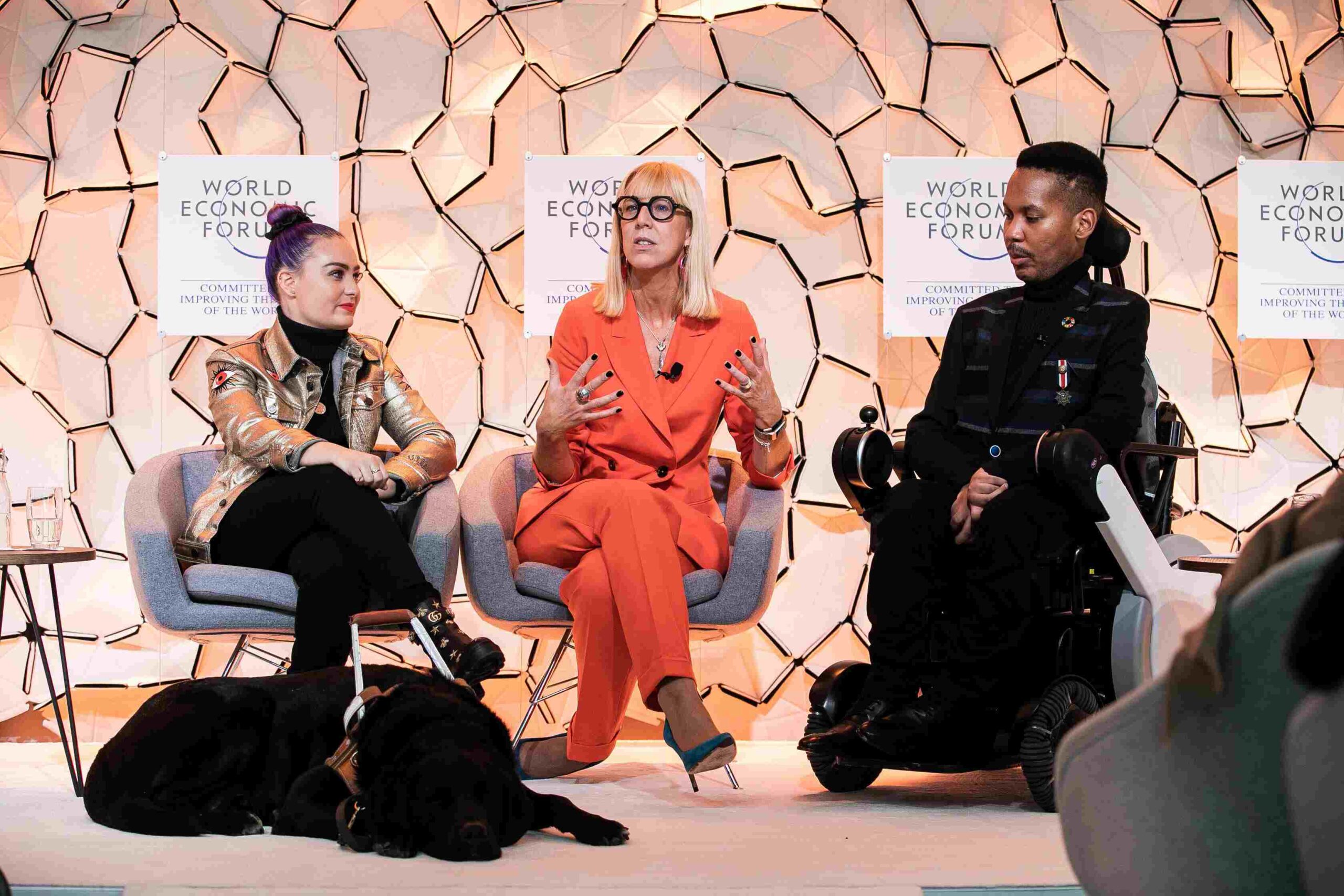
In the realm of corporate leadership, a group of remarkable individuals is not just making waves but breaking down barriers—CEOs who, despite facing physical challenges, have risen to the top echelons of their respective industries. Their stories of resilience, determination, and success serve as beacons of inspiration. Let’s delve into the lives and achievements of the top five physically disabled CEOs who are transforming perceptions and paving the way for a more inclusive future.
Satya Nadella – Microsoft:
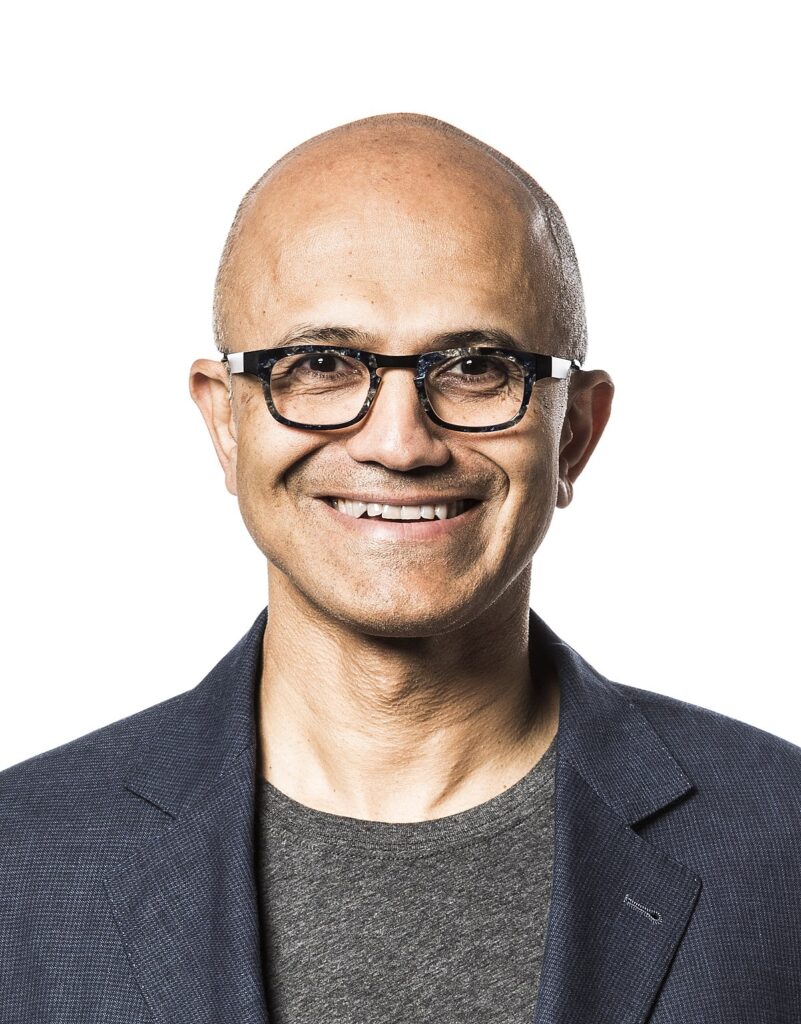
Satya Nadella, the CEO of Microsoft, stands as a testament to the power of inclusive leadership. Though not physically disabled himself, Nadella’s commitment to accessibility and empathy in technology has been shaped by his son Zain, who has cerebral palsy. Under Nadella’s leadership, Microsoft has prioritized accessibility initiatives, creating technology that caters to individuals with diverse abilities.
Jen Easterly – Cybersecurity and Infrastructure Security Agency (CISA):

Jen Easterly, Director of the Cybersecurity and Infrastructure Security Agency (CISA) in the United States, has had a distinguished career in cybersecurity and counterterrorism. Easterly’s achievements highlight the importance of diverse perspectives in critical fields. Despite facing physical challenges, she has risen to lead a key agency responsible for securing the nation’s critical infrastructure.
Alexandra Reeve Givens – Center for Democracy & Technology:
Alexandra Reeve Givens, President and CEO of the Center for Democracy & Technology, has combined her legal expertise with a commitment to technology policy. Daughter of the late Christopher Reeve, she carries on his legacy of resilience. Givens advocates for digital rights and is a prominent voice in discussions surrounding privacy, online freedom, and disability rights.
John Kemp – The Viscardi Center:

John Kemp, President and CEO of The Viscardi Center, has dedicated his career to empowering people with disabilities. As a person with a disability himself, Kemp’s leadership has played a pivotal role in advancing disability rights and accessibility. His work at The Viscardi Center focuses on education, employment, and empowerment for individuals with disabilities.
Caroline Casey – The Valuable 500:
Caroline Casey, though not a CEO in a traditional sense, is the founder of The Valuable 500, a global initiative advocating for disability inclusion in business. Casey, who is visually impaired, has been a driving force behind major corporations committing to making their workplaces more inclusive. Her work emphasizes the business case for diversity, challenging companies to prioritize disability inclusion at the highest levels.
The journeys of these physically disabled CEOs highlight that leadership knows no physical bounds. Their stories inspire us to reevaluate preconceptions and recognize the value of diversity in leadership
Entertainment
Ade Adepitan, a Black BBC presenter and disability inclusion advocate, is breaking barriers.
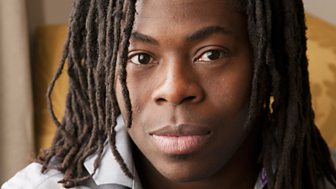
In the world of television broadcasting, Ade Adepitan stands out not just for his charming personality, but also for his incredible journey as a black and disabled BBC presenter. Adepitan’s narrative is one of perseverance, breaking down barriers, and becoming a strong advocate for disability inclusion in the media.
Ade began his athletic career at an early age, motivated by a love of wheelchair basketball. His talent in the sport inspired him to join the Great Britain wheelchair basketball team, which competed in the Paralympic Games in 2004. His passion and accomplishments on the court established the groundwork for a tremendous career that would span other sports.
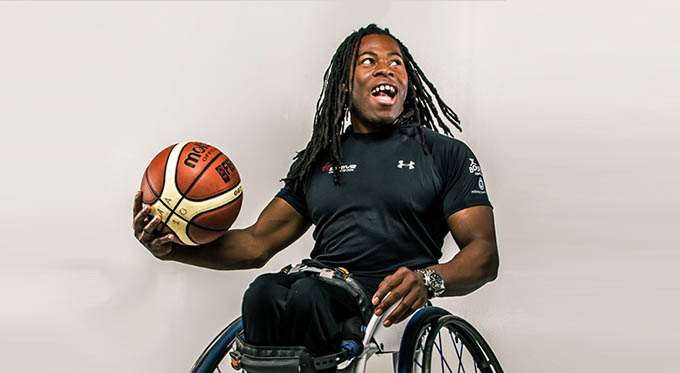
Adepitan’s journey into broadcasting began as a sports presenter, covering major events such as the Paralympic Games and the Invictus Games. His eloquence, passion, and depth of insight quickly caught the attention of the BBC, leading to his role as a prominent broadcaster and documentary maker.
Ade Adepitan’s impact at the BBC is both profound and trailblazing. As a black presenter with a disability, he brings a unique perspective to the screen, challenging stereotypes and reshaping narratives. Adepitan’s warmth and authenticity have made him a beloved figure among audiences, transcending barriers of race and ability.
Besides his on-screen talents, Adepitan is a strong champion for disability rights and inclusivity. He uses his platform to raise awareness about the issues that disabled people experience, as well as to advocate for more media representation. Adepitan’s lobbying includes efforts targeted at increasing opportunities for disabled people in the entertainment sector.
Ade Adepitan’s experience as a black, disabled BBC presenter acts as an inspiration for aspiring broadcasters and anyone confronting physical problems. His accomplishments emphasise the necessity of diversity in media representation and add to the continuing conversation regarding inclusivity in the entertainment business.
In conclusion, Ade Adepitan’s tale demonstrates the power of determination, tenacity, and honesty.
Download the P+US app now for the latest updates.

